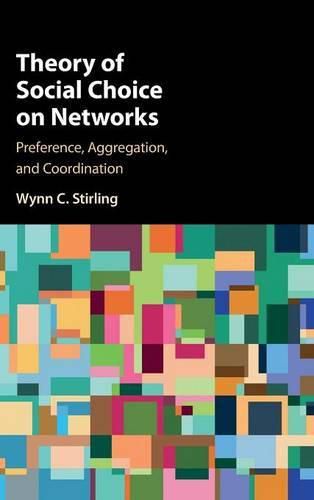Readings Newsletter
Become a Readings Member to make your shopping experience even easier.
Sign in or sign up for free!
You’re not far away from qualifying for FREE standard shipping within Australia
You’ve qualified for FREE standard shipping within Australia
The cart is loading…






Classical social choice theory relies heavily on the assumption that all individuals have fixed preference orderings. This highly original book presents a new theory of social preferences that explicitly accounts for important social phenomena such as coordination, compromise, negotiation and altruism. Drawing on cybernetics and network theory, it extends classical social choice theory by constructing a framework that allows for dynamic preferences that are modulated by the situation-dependent social influence that they exert on each other. In this way the book shows how members of a social network may modulate their preferences to account for social context. This important expansion of social choice theory will be of interest to readers in a wide variety of disciplines, including economists and political scientists concerned with choice theory as well as computer scientists and engineers working on network theory.
$9.00 standard shipping within Australia
FREE standard shipping within Australia for orders over $100.00
Express & International shipping calculated at checkout
Classical social choice theory relies heavily on the assumption that all individuals have fixed preference orderings. This highly original book presents a new theory of social preferences that explicitly accounts for important social phenomena such as coordination, compromise, negotiation and altruism. Drawing on cybernetics and network theory, it extends classical social choice theory by constructing a framework that allows for dynamic preferences that are modulated by the situation-dependent social influence that they exert on each other. In this way the book shows how members of a social network may modulate their preferences to account for social context. This important expansion of social choice theory will be of interest to readers in a wide variety of disciplines, including economists and political scientists concerned with choice theory as well as computer scientists and engineers working on network theory.